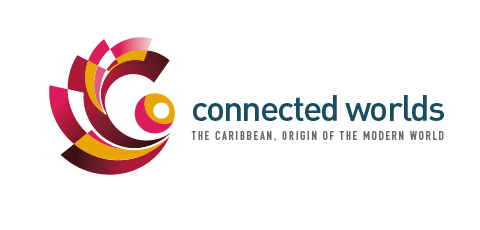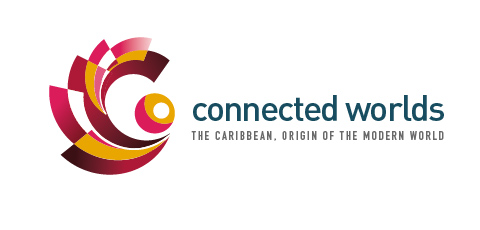
Connected Worlds: The Caribbean, Origin of Modern World (ConnecCaribbean-823846)
“This project has received funding from the European Union’s Horizon 2020 research and innovation programme under the Marie Skłodowska-Curie grant agreement No 823846”.
Connected Worlds: The Caribbean, Origin of Modern World is a project directed by Dr. Consuelo Naranjo Orovio, from the Institute of History of the CSIC. The project will be carried out between 2019 and 2022 and has a funding of € 1,922,800. ConnecCaribbean is not just a research project on the history of the Caribbean; represents an opportunity to establish stronger links between the territories of the Caribbean, Europe and Latin America. The proposed research topic invites networking to achieve considerable comparative and transdisciplinary results; issues that shaped the Atlantic World since 1492 will be addressed: trade and slave system, race, racism, imperial policies, resistances, circulation of knowledge, images, representations in and of the Caribbean, and development models.
101 Professors, lecturers and researchers from 15 institutions of Europe, Caribbean and Latin America collaborate in the proyect.
In Europe: Spain: Institute of History-CSIC, University of Seville, University Pablo de Olavide, and Doce Calles Editions; Germany: Leibniz Universität Hannover; France: IHEAL-Université Sorbonne Nouvelle, Paris, and Laboratoire Caribéen de Sciences Sociales- Université des Antilles, Martinique; Italy: Università Cattolica del Sacro Cuore, Milan.
In America: Dominican Republic: Center for Caribbean Studies-Pontifical Catholic University Madre y Maestra; Cuba: Academy of the History of Cuba; Costa Rica: Center for Historical Research of Central America (CIHAC) -University of Costa Rica; Colombia: Universidad del Norte, Barranquilla, and University of Magdalena, Santa Marta; Puerto Rico: University of Ana G. Méndez, Recinto de Gurabo; Chile: Center for Latin American Cultural Studies (CECLA) – University of Chile.
The networking research of a large group of academics will not only promote cooperation, but will encourage comparative work based on the sharing of case studies that will highlight differences as well as similarities in national histories. The multidisciplinarity of the groups that make up the project allows studying the topics from different approaches: economic history, social history, political history, cultural history, history of science, anthropology and literature.
We believe that networking gives value to cooperation since each participant is an active member and interlocutor with each of the others. We believe that networking facilitates the exchange of sources and knowledge while at the same time making relationships between members of the scientific community more flexible; it makes possible a greater circulation and diffusion of knowledge, and enhances individual capacities which impacts on the production of knowledge.
The Caribbean region is a fragmented geographical space, and our team of researchers aims to take advantage of this opportunity to reactivate and organize research networks in the Caribbean and to establish stronger links between Spain, Europe and Latin America, especially Hispanic Caribbean, French Caribbean and Latin America territories among others. ConnecCaribbean is not a random research project on the history of the Caribbean; it represents a genuine opportunity to bring together universities and Caribbean partners around issues of slavery and post slave societies. Beyond its existence on a map, the Caribbean region must build specialized research structures and networks, which will allow a more exhaustive exploration of regional problems which take into account the historical and socio-political context of the Greater Caribbean.
GENERAL OBJECTIVES
- Rescue the historical social, cultural and political autonomy of the Caribbean, beyond the history written by and from the great empires
- Study, using a comparative approach, of the Caribbean societies from the elements that generated the Atlantic
- Analyze the Atlantic circulation of people, ideas, traditions and
- Promote exchange, debate and academic cooperation between institutions in Europe, the Caribbean and Latin
- Obtain an understanding that recognizes the traces of Europe and Africa in the
SPECIFIC OBJECTIVES
- Analysis of the slave system: slavery, race and
- Counterpoint between imperial policies and resistances: economic, social and cultural practices that generated multiple identities and cultural
- Analysis of the circulation of knowledge, images, discourses and representations in and of the
- Study of the development models in the region: urban, economical, political and social.
RESULTS
- Publications
- Activities and results dissemination:
-Chair of Afro-descendant studies to be held at the Universidad del Norte, Colombia.
-Conferences in secondary schools and other spaces open to a non-specialist public.
-Documentary on slavery, race and memory of slavery.
-Exhibition at IH-CSIC: The face of Africa in America (November 2020).
-Several seminars about the issues included in the objectives.
BENEFITS OF THE PROJECT
- To contribute to the development of the Caribbean countries and generate a future that places value on the integration of human
- To overcome the racial complex and the scourge of slavery and its traces in the area, and its perception by other regions of the
- Protection and rescue of historical memory: promotion of cultural



